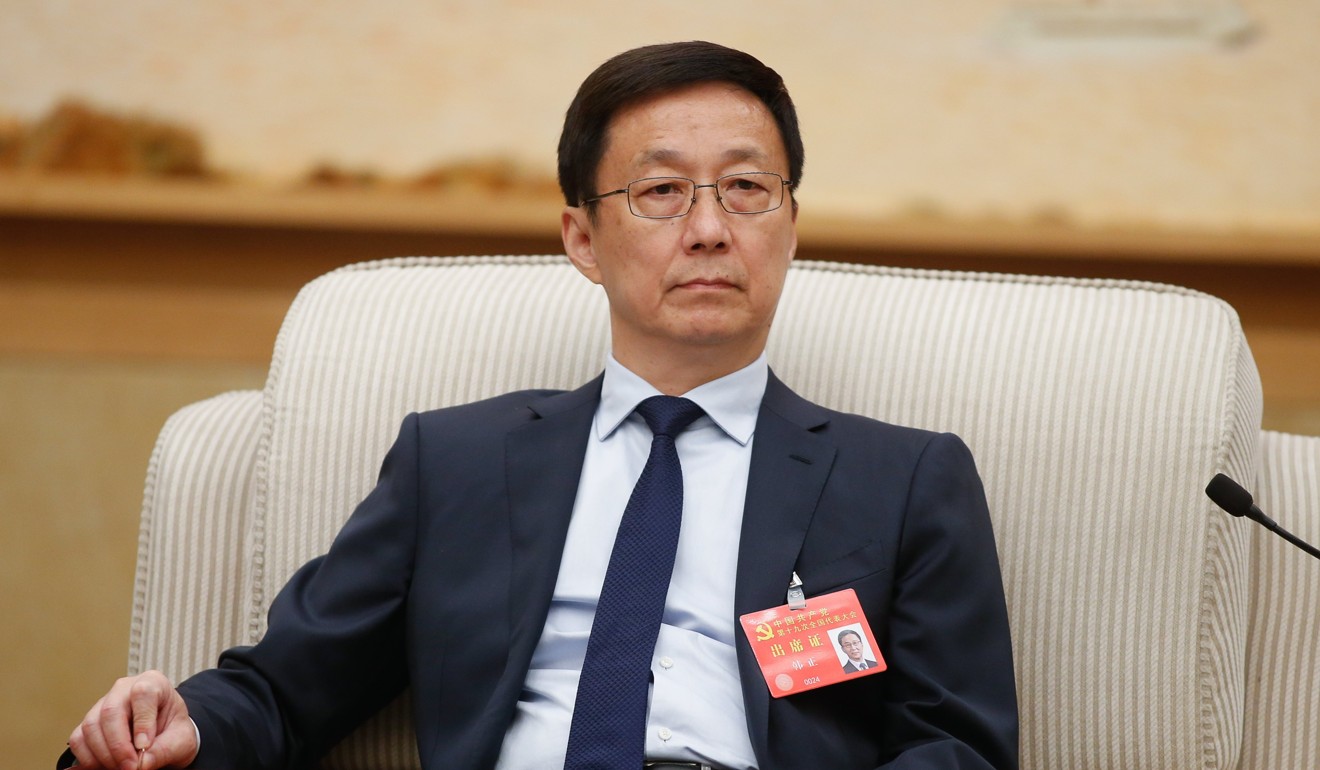
Chinese Vice-Premier Han Zheng the ‘right’ man in charge of Hong Kong affairs as city shuns political gridlock for economic growth
Former Shanghai mayor and party chief described as employing softer touch than predecessor, with expected focus on city’s economics over its politics
Given his vast experience in steering Shanghai’s development, China’s new point man on Hong Kong is an appropriate choice as the city moves to focus on the economy rather than on the political gridlock of recent years, officials familiar with Beijing said.

Han, 64, served as mayor of Shanghai between 2003 and 2012. Later he worked as the city’s party chief from 2012 until October last year.
Ip Kwok-him, a local deputy to the national legislature, believed Han was an appropriate choice to oversee Hong Kong and execute guidance from the top leadership.
Han Zheng visits Shenzhen to promote Greater Bay Area project
His view was echoed by Professor Lau Siu-kai, vice-chairman of a semi-official think tank, The Chinese Association of Hong Kong and Macau Studies.
“After a few years of study, Beijing’s framework for ruling Hong Kong has been settled, with President Xi laying it out on July 1 last year,” Lau said. “Who is the point man is just a matter of execution.”
On the replacement of the No 3 official with one who is No 7 in the Beijing leadership, Lau believed it did not mean the central government had attached less importance to Hong Kong.
“The ultimate one in charge is Xi Jinping,” he said.
Although the policy framework has been nailed down, Lau believed Han could deliver it with a softer touch compared to his predecessor, who was known for speaking bluntly.
“Shanghai has been opened up for so many years,” he said, referring to the former mayor’s tenure there where he led in spearheading reforms for its economic development focusing on services, including the setting up of a free trade zone and piloting tax changes.
“Han understands better how to deal with Hong Kong.”
Han understands better how to deal with Hong Kong
Anthony Wu Ting-yuk, a standing committee member of the nation’s top political advisory group, shared a similar view, recalling a discussion several years ago with Han about competition between Hong Kong and Shanghai.
“We can catch up in no time on hardware, but we have a long, long way to go in terms of software,” Wu quoted him as saying, adding that Han pleaded with Hongkongers not to lower their standards in running businesses on the mainland as that was the only way Shanghai could improve.
“He is a man with vision and really knows the ins and outs,” Wu said, describing Han as a gentleman.
Last month, Zhang Xiaoming, Beijing’s top official in charge of the city’s affairs, delivered a speech conveying the latest “four-point” guidelines from a “central government leader”, who was understood to be Han.
Tam Yiu-chung, the city’s sole deputy to China’s top legislative body, said that valuing Hong Kong’s opinion would be Han’s working style.
“That leads to a question: would the international community regard Hong Kong as an international city or one of the mainland cities?”
Wu urged Han to respect the city’s autonomy and refrain from intervening in its internal affairs.

